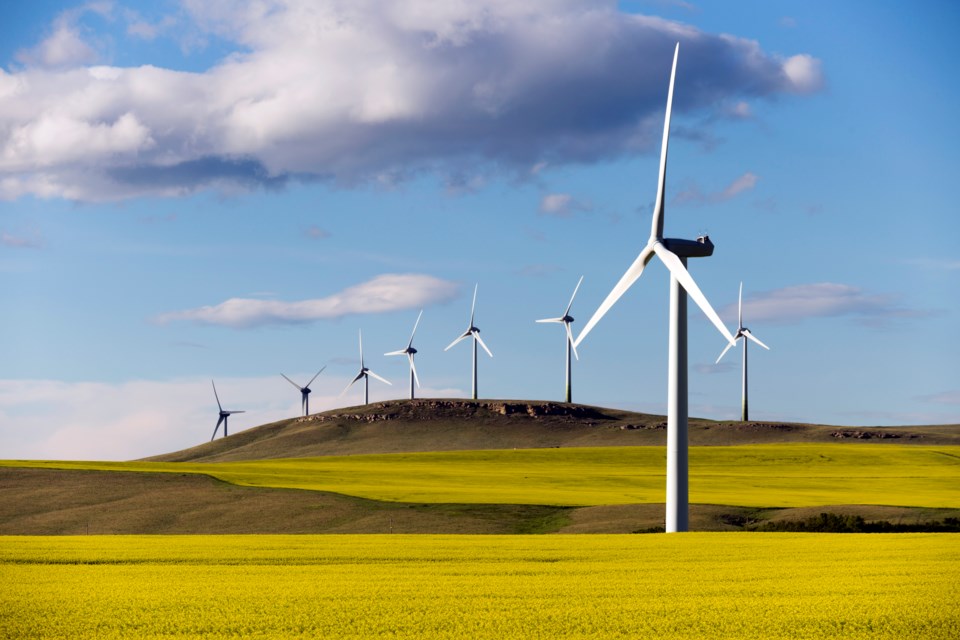In 2022, Alberta generated 3.6 gigawatts or 20 percent of its electricity through wind turbines.
They represent a cleaner source of electricity, certainly better than burning oil or gas. And while turbines are massive and solar farms take up a lot of space, technological improvements are continuing to make both a better choice for generating electricity.
They do suffer from some disadvantages. They only work when the wind blows and the sun shines. Having lived in Alberta, it feels the wind is always blowing. It is not and this is the point Alberta Premier Danielle Smith has tried to make.
Fair enough. The wind doesn’t always blow and the sun doesn’t always shine. However, that does not mean they are a bad choice and that keeping the economy running on fossil fuels is the only alternative.
In a recent speech, when Smith asked if getting to carbon neutral in 12 years is achievable, the audience answered “yes.” Smith then asked what the audience knew that her “industry experts” didn’t. The audience replied “batteries.”
“Let’s talk about batteries for a minute” Smith said “because I know everybody thinks this economy is going to be operated on wind and solar and battery power, and it cannot.”
She is not totally wrong in the sense that batteries are limited in their capacity to generate power. However, fuel cells are not. And this is where the Premier of Alberta and, in my opinion, all of the premiers need to get on board.
Yes, wind doesn’t blow all the time. Yes, the sun doesn’t always shine. But when they do, the electricity could go into making hydrogen and oxygen from water. This can be stored safely and easily for use in an electrical power plant to supply fuels cells on demand. Indeed, electricity generated from fuel cells is more easily available than electricity from natural gas.
It would allow load leveling and Alberta could be a world leader.
But not if the attitude expressed by Smith prevails: “We need legitimate, real solutions that rely on baseload power rather than fantasy thinking.”
We already have the technology. It is not a fantasy. And it is a way to wean our country off fossil fuels. We are all in this together.
Todd Whitcombe is a chemistry professor at UNBC.



